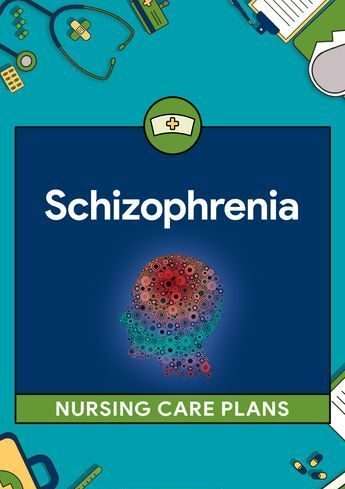What is Nursing Diagnosis for Schizophrenia
Schizophrenia is a complex and chronic mental health disorder that significantly impacts how a person thinks, feels, and behaves. The symptoms can vary widely, making it essential for healthcare providers, particularly nurses, to understand the specific needs of each patient. Identifying appropriate nursing diagnoses for schizophrenia is crucial in providing holistic care and support that addresses both the physical and psychological aspects of the disorder. In this article, we explore five essential nursing diagnoses for schizophrenia, highlighting their significance and providing practical interventions to improve patient outcomes.

For the Best Doctor Consultancy, You can visit:
1. Risk for Violence: Self-Directed or Directed at Others
One of the primary concerns in the care of patients with schizophrenia is the potential for violence, either towards themselves or others. This risk often arises from the patient’s experiences of delusions, hallucinations, or other symptoms that distort their perception of reality. Identifying this nursing diagnosis for schizophrenia early is crucial to prevent escalation and ensure patient safety.
Interventions:
- Monitor the patient closely for early signs of agitation, such as restlessness or verbal threats, and take proactive steps to de-escalate the situation.
- Create a safe environment by removing any objects that could be used as weapons and ensuring that the patient has a calm and structured setting.
- Develop a crisis intervention plan in collaboration with the patient, their family, and the healthcare team, detailing specific steps to take if violent behavior occurs.
2. Disturbed Thought Processes
Patients with schizophrenia often struggle with delusions, disorganized thinking, and impaired judgment. This disturbed thought process is a key nursing diagnosis for schizophrenia that can severely impact their daily functioning and decision-making abilities.
Interventions:
- Establish a trusting relationship with the patient by consistently demonstrating empathy, respect, and nonjudgmental support. This trust is essential for encouraging the patient to share their thoughts and feelings.
- Use clear, simple language when communicating with the patient. Avoid abstract concepts or ambiguous terms that could confuse them further.
- Encourage reality-based thinking by gently challenging delusions in a supportive manner. For example, if a patient believes they are being followed, calmly discuss the situation and guide them towards a more realistic interpretation.
3. Impaired Social Interaction
Schizophrenia often leads to social withdrawal and difficulty in forming or maintaining relationships. This impaired social interaction is another critical nursing diagnosis for schizophrenia that needs to be addressed to help patients reintegrate into social settings.
Interventions:
- Encourage participation in group activities tailored to the patient’s interests and abilities. These activities can help rebuild social skills and reduce feelings of isolation.
- Provide support in developing social skills through therapeutic interventions, such as role-playing exercises, to help the patient practice and improve their ability to interact with others.
- Promote family involvement in the patient’s care plan, as family members can offer emotional support and help reinforce social connections.
4. Self-Care Deficit
Patients with schizophrenia may experience a decline in their ability to perform daily self-care activities, such as bathing, dressing, and eating. This self-care deficit is a significant nursing diagnosis for schizophrenia that can lead to further deterioration in their physical health and overall well-being.
Interventions:
- Assess the patient’s ability to perform activities of daily living (ADLs) regularly. Provide assistance or modify tasks as necessary to accommodate their current level of functioning.
- Develop a structured daily routine for the patient, incorporating reminders and checklists to help them complete essential self-care tasks.
- Provide education and support to both the patient and their caregivers on maintaining personal hygiene, nutrition, and general health practices, reinforcing the importance of self-care in their overall treatment plan.
5. Noncompliance with Treatment
Noncompliance with treatment is a significant barrier to the successful management of schizophrenia. This issue often stems from the patient’s lack of insight into their illness, negative side effects from treatment, or a deep-seated mistrust of healthcare providers. Addressing this noncompliance is a crucial nursing diagnosis for schizophrenia.
Interventions:
- Educate the patient and family about the importance of adherence to the prescribed treatment plan, emphasizing how it can prevent relapses and improve the patient’s quality of life.
- Address any concerns or misconceptions about treatment openly and honestly. Patients are more likely to comply with their treatment plan when they understand its benefits and have had their fears or doubts alleviated.
- Regularly review and adjust the care plan with the patient’s input to ensure it aligns with their preferences, comfort, and needs. This collaborative approach can enhance their commitment to following the prescribed regimen.
For further information and guidelines on nursing care for schizophrenia, consider exploring these authoritative resources:
Conclusion
Nursing diagnoses for schizophrenia are essential for developing a comprehensive care plan that addresses the unique needs of each patient. By focusing on critical areas such as the risk for violence, disturbed thought processes, impaired social interaction, self-care deficit, and noncompliance with treatment, nurses can play a pivotal role in improving patient outcomes.
You can visit our more Blogs on:

